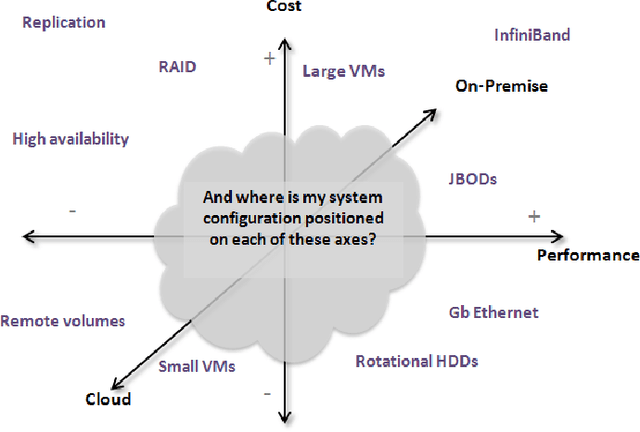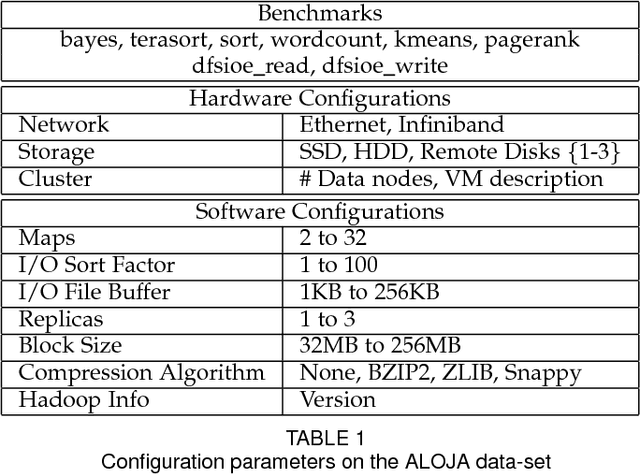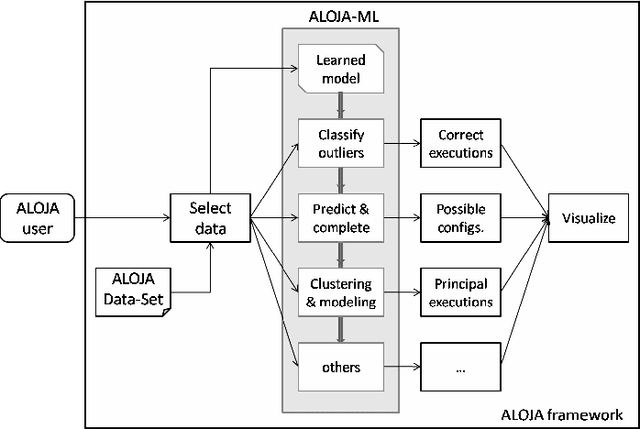ALOJA: A Framework for Benchmarking and Predictive Analytics in Big Data Deployments
Paper and Code
Nov 06, 2015



This article presents the ALOJA project and its analytics tools, which leverages machine learning to interpret Big Data benchmark performance data and tuning. ALOJA is part of a long-term collaboration between BSC and Microsoft to automate the characterization of cost-effectiveness on Big Data deployments, currently focusing on Hadoop. Hadoop presents a complex run-time environment, where costs and performance depend on a large number of configuration choices. The ALOJA project has created an open, vendor-neutral repository, featuring over 40,000 Hadoop job executions and their performance details. The repository is accompanied by a test-bed and tools to deploy and evaluate the cost-effectiveness of different hardware configurations, parameters and Cloud services. Despite early success within ALOJA, a comprehensive study requires automation of modeling procedures to allow an analysis of large and resource-constrained search spaces. The predictive analytics extension, ALOJA-ML, provides an automated system allowing knowledge discovery by modeling environments from observed executions. The resulting models can forecast execution behaviors, predicting execution times for new configurations and hardware choices. That also enables model-based anomaly detection or efficient benchmark guidance by prioritizing executions. In addition, the community can benefit from ALOJA data-sets and framework to improve the design and deployment of Big Data applications.
 Add to Chrome
Add to Chrome Add to Firefox
Add to Firefox Add to Edge
Add to Edge